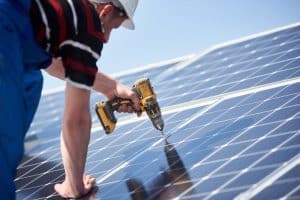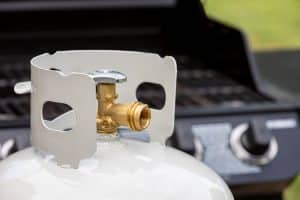Home > Energy Plans > Energy Rebates
Energy Rebates
Are you wondering what energy rebates may be available to help you with the cost of your electricity bills? Find out here with Savvy.
Author
Savvy Editorial TeamFact checked

Are you wondering what energy rebates may be available? With the sharp rise in electricity prices in 2022 and 2023, many Australian households are grappling with electricity bills that may have increased by 23% or more. Coupled with rising interest rates, this has left many households struggling. Fortunately, the Australian government introduced the National Energy Bill Relief package in the budget in 2023, offering much-needed support to households grappling with increasing energy costs. Find out how energy prices have increased and what energy rebates are available here with Savvy.
How much have electricity prices risen in 2023?
In May 2023 the Australian Energy Regulator stated that the Default Market Offer, which is the maximum price for basic energy plans in NSW, SE QLD and SA, will go up by between 20.8% to 23.9% on 1 July 2023. Increases for controlled load plans will be between 19.6% and 24.9%. The high price for future energy contracts is one of the main reasons blamed for this increase.
Similarly, the Essential Services Commission, the energy regulator in Victoria, announced that the Victorian Default Offer, which is the standard price for electricity in VIC, will go up by 25% starting from 1 July 2023. This increase is mainly because wholesale electricity costs have significantly risen due to market fluctuations back in 2022.
What energy rebates are available in Australia in 2023?
In 2023 the Australian government launched the National Energy Bill Relief package in collaboration with state and territory governments. This budget initiative aims to provide financial relief to eligible households and small businesses by offering electricity bill rebates. Here’s what this means for you, and how to take advantage of these rebates state by state:
Queensland:
- Vulnerable households rebate: Eligible households currently receiving the $372 QLD electricity rebate will receive an additional $700, totalling $1,072.
- Household rebate: All other households with an active electricity account will receive a $550 rebate.
- Small business rebate: Eligible small businesses with energy consumption below 100 MWh can receive a $650 rebate.
New South Wales:
- Household rebate: Eligible households can receive a $500 rebate, in addition to the existing NSW energy rebates.
- Small business rebate: Eligible small businesses with energy consumption below 100 MWh are eligible for a $650 rebate.
Australian Capital Territory:
- Household rebate: Eligible households can receive a $175 rebate, along with the ACT utilities concession.
- Small business rebate: Eligible small businesses with energy consumption below 100 MWh can receive a $325 rebate.
- Feed-in tariff savings: Estimated savings of $152 for households and $624 for small businesses through the government's large-scale feed-in tariff scheme.
Victoria:
- Household rebate: Eligible households can receive a $250 rebate, in addition to the VIC electricity concession.
- Small business rebate: Eligible small businesses with energy consumption below 40 MWh can receive a $325 rebate.
- Power saving bonus: All households can receive a $250 direct payment by applying for the Power Saving Bonus.
South Australia and Tasmania:
- Household rebate: Eligible households will receive a $500 rebate in addition to the energy concession.
- Small business rebate: Eligible small businesses with energy consumption below 160 MWh can receive a $650 rebate.
Northern Territory:
- Eligible households in the Northern Territory can receive a rebate of $350 per household.
Western Australia:
- Eligible households currently registered with the Electricity Concession Extension Scheme (ECES) in Western Australia will receive a $500 electricity credit split over two payments.
- Other households: All other Western Australian households can receive a $400 electricity credit.
Please note that the information provided is based on the available electricity rebates in 2023, and may be subject to change. For more detailed eligibility criteria and application procedures, please visit the respective state government websites.
Do I have to apply for the government energy rebate?
If you are already receiving an existing electricity bill concession, or are eligible for a concession scheme in your state or territory, you do not need to apply for the rebate. The bill relief will be automatically applied to your electricity account by your electricity provider.
However, if you believe you are eligible for a concession but are not currently receiving it, you may need to contact your electricity retailer to apply for the concession, and you will then receive the bill relief as well.
For specific instructions and eligibility requirements, it is recommended to check with your state or territory government
Who will receive the energy rebate? What is the eligibility requirement?
Eligibility for the energy bill relief rebate varies slightly depending on the state or territory you live in. Generally, to be eligible for the rebate, you must meet the following criteria:
- You must be the primary account holder or named on the electricity bill (except in Queensland and Western Australia): In most jurisdictions, you need to be an account holder or named on the household electricity bill to be eligible for the rebate.
- You must be an eligible concession card holder, or in receipt of Centrelink payment: You must hold an eligible concession card or receive an eligible government payment specific to your state or territory. This applies to any seniors' energy rebates, for example.
- Residence: The rebate is applicable only to your principal place of residence, and you can receive the rebate for one household only.
It's important to note that eligibility requirements vary, so it's important to visit the official government website in your state or territory to determine specific eligibility criteria.
When will people in each state and territory receive the energy rebate?
The timing of when you will receive the rebate varies depending on the state or territory where you live. Here's a breakdown of the estimated timelines:
New South Wales, Queensland, South Australia, Northern Territory, and the Australian Capital Territory:
Residents will receive the bill relief quarterly during the 2023-24 financial year.
Victoria:
Residents will receive the bill relief in instalments throughout the 2023-24 period.
Western Australia:
Residents will receive the bill relief on their electricity bills in July and December 2023.
Tasmania:
Residents will receive the bill relief on their electricity bills in the September and June quarters of the 2023-24 and 2024-25 financial years.
Helpful energy guides
Compare energy plans
Disclaimer:
Savvy is partnered with Econnex Comparison (CIMET Sales Pty Ltd, ABN 72 620 395 726) to provide readers with a variety of energy plans to compare. We do not compare all retailers in the market, or all plans offered by all retailers. Savvy earns a commission from Econnex each time a customer buys an energy plan via our website. We don’t arrange for products to be purchased directly, as all purchases are conducted via Econnex.
Any advice presented above is general in nature and doesn’t consider your personal or business objectives, needs or finances. It’s always important to consider whether advice is suitable for you before purchasing an energy plan. For further information on the variety of energy plans compared by Econnex, or how their business works, you can visit their website.









